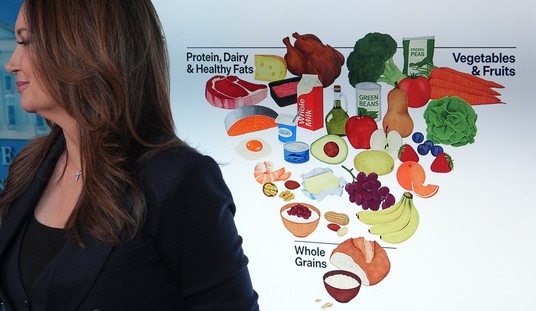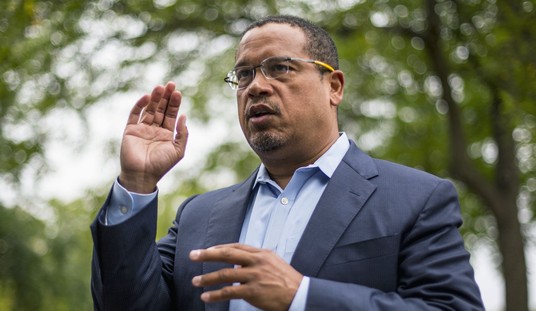Americans are sour on the economy, which surprises Politico’s Alexander Burns [link fixed], but it shouldn’t. In the first major likely-voter poll of the general election, Democrats face strong headwinds on the economic issues that voters tell pollsters will be their main focus in November. Burns notes that voters aren’t buying the Recovery Summer Part IV meme Democrats are selling, although it appears Burns is:
If the nation’s economy is on the mend, the voters of 2014 aren’t feeling it.
Despite continued signs of a halting but persistent national comeback, midterm voters remain frustrated and unhappy with the state of the economy, according to the latest POLITICO poll of likely voters in 2014 battleground states. Many appear to blame President Barack Obama: 57 percent of these voters disapprove of his economic leadership.
By every measure in the survey, a gloomy mood still pervades the electorate when it comes to kitchen-table issues: Just 23 percent say their personal financial situation has improved over the past year, versus 30 percent who say it has gotten worse.
Democrats had initially envisioned 2014 as a year when their candidates could hail the fruits of an economic turnaround. For a time, a handful of impressive monthly employment reports bolstered their hopes.
But while the economy has improved, it has not yet taken flight: Unemployment remains above 6 percent, and in August the country gained just 142,000 jobs. Candidates around the country have tempered their claims of economic improvement, including Republican governors who also initially aimed to run on their records of job creation.
Some states have seen improved job creation, but not the US as a whole. With the exception of one month out of the past year, there haven’t been any “impressive monthly employment reports,” and even the one didn’t get to the 300K level. Adding an average of around 200K a month only slightly surpasses population growth in the US, which means for the last five years since the technical recovery began, the US has done little except tread water when it comes to job creation. Furthermore, the 6% unemployment rate would be impressive if the workforce participation rate had remained fairly constant, but it hasn’t; it’s at a 36-year low.
This is the difference between seeing statistics and knowing what they mean. It’s also the difference between reading stats and living in the environment. Voters do the latter, and they know from their own experience and that of their friends, family, and neighbors that the recovery is at best tepid, and at worse illusory. The chronically unemployed can’t find any way to get back into the labor force, and most of the jobs being created are low-paying, entry-level service jobs. Voters don’t need to know the context of the statistics to know the economy has been stuck in low gear for the last several years.
Unfortunately for Democrats, 35% of likely voters believe economic issues are the top priority for this election in this battleground poll. Another 19% think it’s national security, which makes the situation even worse. The issues that Democrats hoped to highlight in this cycle — the environment, social problems, and immigration — combine up for a whopping 11% of voters who will prioritize them this summer.
And even on immigration, Democrats have lost their grip on the issue. Obama gets a 35/64 approval rating on the issue, and voters give the edge to Republicans on leadership of it, 34/31. Even while two-thirds support comprehensive immigration reform, voters take a much harder edge on the border crisis. A near-majority (49%) want the children flooding across the border this summer returned to their country of origin, while only 29% want them to stay. On the pathway to citizenship, it’s virtual tie, with 51/49 in favor of the idea.
Overall, Obama gets a 44/56 job approval rating and 42/57 on the economy. If that sounds higher than the national numbers we are seeing in other polls, it is, but perhaps a function of the sample:
Likely voters were surveyed in the following states with competitive Senate elections: Alaska, Arkansas,
Colorado, Georgia, Iowa, Kansas, Kentucky, Louisiana, Michigan, Minnesota, Montana, North Carolina,
New Hampshire, Oregon, South Dakota, Virginia and West Virginia.
It’s interesting to see Minnesota on that list. Democrats manage a one-point edge in the generic ballot, using the 2010 voter model for the partisan balancing (35/35/30). That’s probably better than they’d expect, but Democrats generally need a much bigger edge on this measure to come out ahead. If they plan to keep running on contraception and global warming, they’d better expect to do a lot worse in November.
Update: I wrote “6% inflation rate” when I meant “6% unemployment rate.” Thanks to Erik S for the correction via e-mail.








Join the conversation as a VIP Member